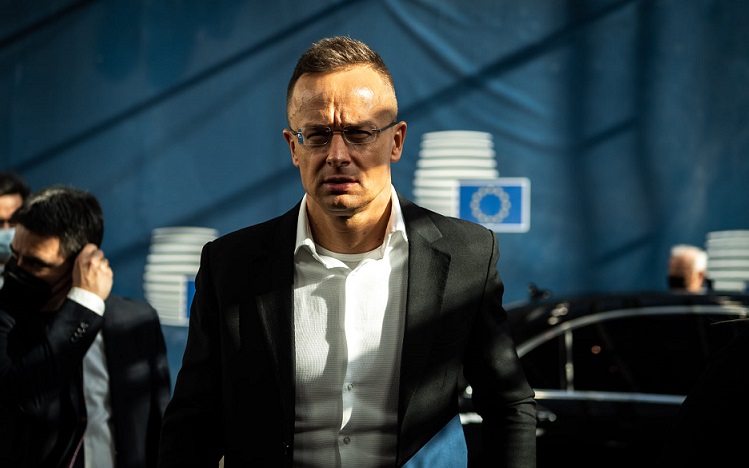“Only a minority of member states genuinely support the enlargement of the European Union; that is the stark reality contrasting with the aspirations of aspiring nations,” remarked Hungarian Minister of Foreign Affairs, Péter Szijjártó, in an interview for the program Agenda 35. With Hungary set to assume the presidency of the EU on July 1, Szijjártó emphasized that his country stands among the staunchest proponents of expansion, as reported by SDK.mk.
“Why shouldn’t they be the same countries? They erect artificial barriers, impose conditions that are wholly unrealistic. For instance, demanding one hundred percent alignment with the EU’s foreign and security policies is neither equitable nor rational. It’s unreasonable to expect such conditions to be met until a nation is fully integrated into political integration,” Szijjártó asserted.
He underscored the need for the Hungarian EU presidency to establish pragmatic objectives for the next six months. This entails seizing the opportunity to prioritize certain issues on the agenda, expedite certain files, and propel them forward.
“I think it is a shame that the real accession talks have not yet started with Macedonia, as well as with Albania. “We know that Montenegro cannot close any chapter until now,” said Szijjártó.
When questioned about Hungary’s continued membership in organizations whose values it appears to diverge from, Szijjártó responded, “We share the fundamental values of the EU; we advocate for a strong EU. The issue lies in how to bolster the EU’s strength, as it is currently faltering and growing weaker by the day… That is our stance: strong member states, robust integration, not a supranational entity.”
Regarding Hungary’s involvement in the asylum case of former Prime Minister and leader of VMRO-DPMNE Nikola Gruevski, who sought refuge in Hungary on November 20, 2018, Szijjártó stated that the matter is subject to judicial proceedings, and thus he cannot predict the outcome.
Gruevski had evaded serving a two-year prison sentence in North Macedonia for his involvement in the procurement of a Mercedes valued at 600,000 euros, which led to an extradition request from Macedonian authorities. Szijjártó clarified that the decision lies within the purview of the court, and he remains uncertain about the eventual resolution of the situation.
“I used to talk to him often, I usually asked him about his opinion on the development of the Western Balkans, how he sees things, he is the only former prime minister we have here, so I am convinced that there is no one who would know better what is happening. No, no, no privileges. He got asylum, and the procedure is legal, not political, so when you ask me what will happen with the request for extradition, I have no idea, because it is not up to the Government, and especially not the Ministry of Foreign Affairs, to appreciate that. It is always the court that makes the decision, and in our country we do not interfere in the judiciary. “We don’t know what’s going to happen,” Ciarto said.
When asked if Gruevski’s status will be threatened in Hungary, given the disagreements with the current leader of VMRO-DPMNE, Hristijan Mickoski, Szijarto said “No, because it has nothing to do with the legal status, whether and what kind of relations he has with people in Macedonia.”




Comments are closed for this post.